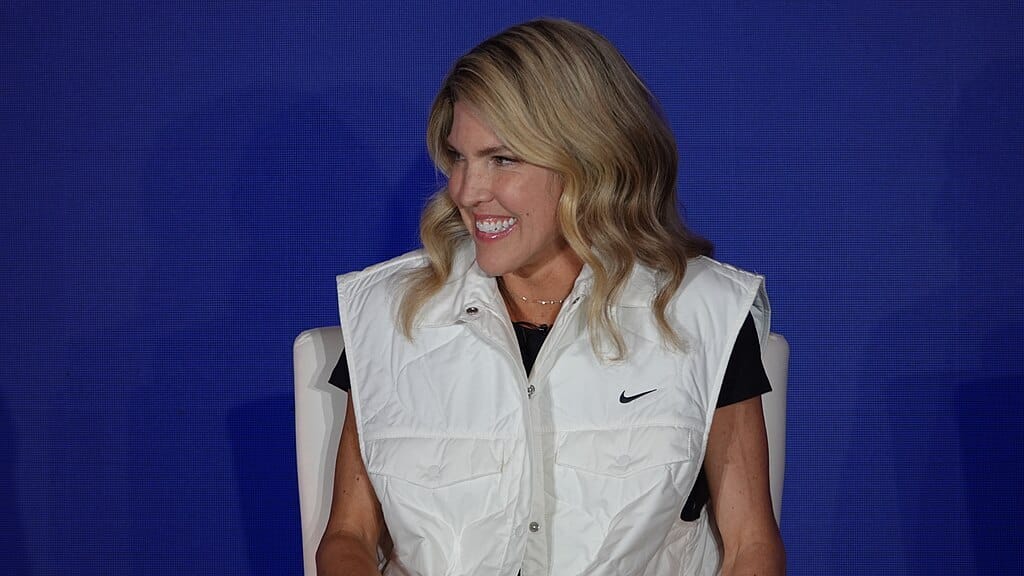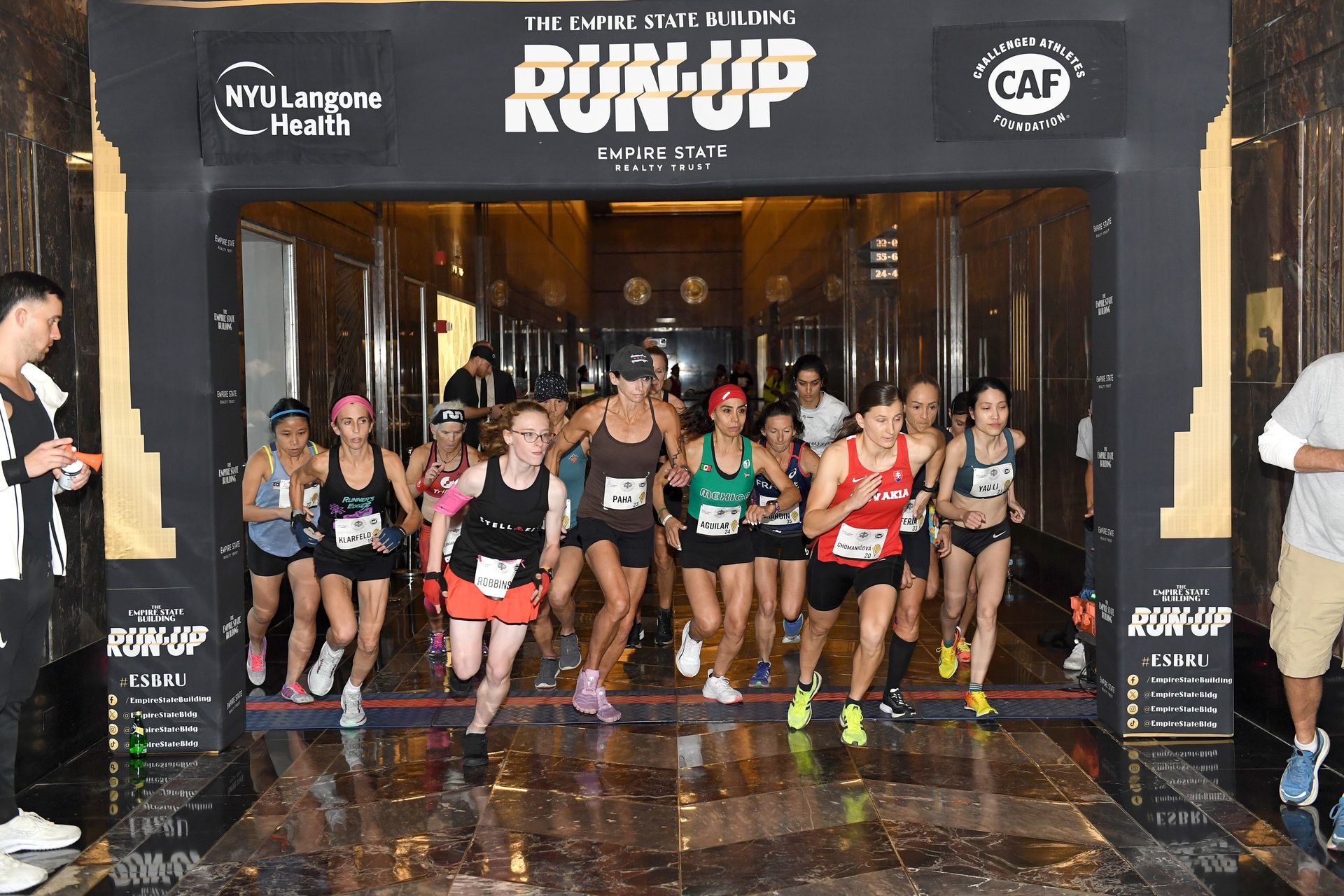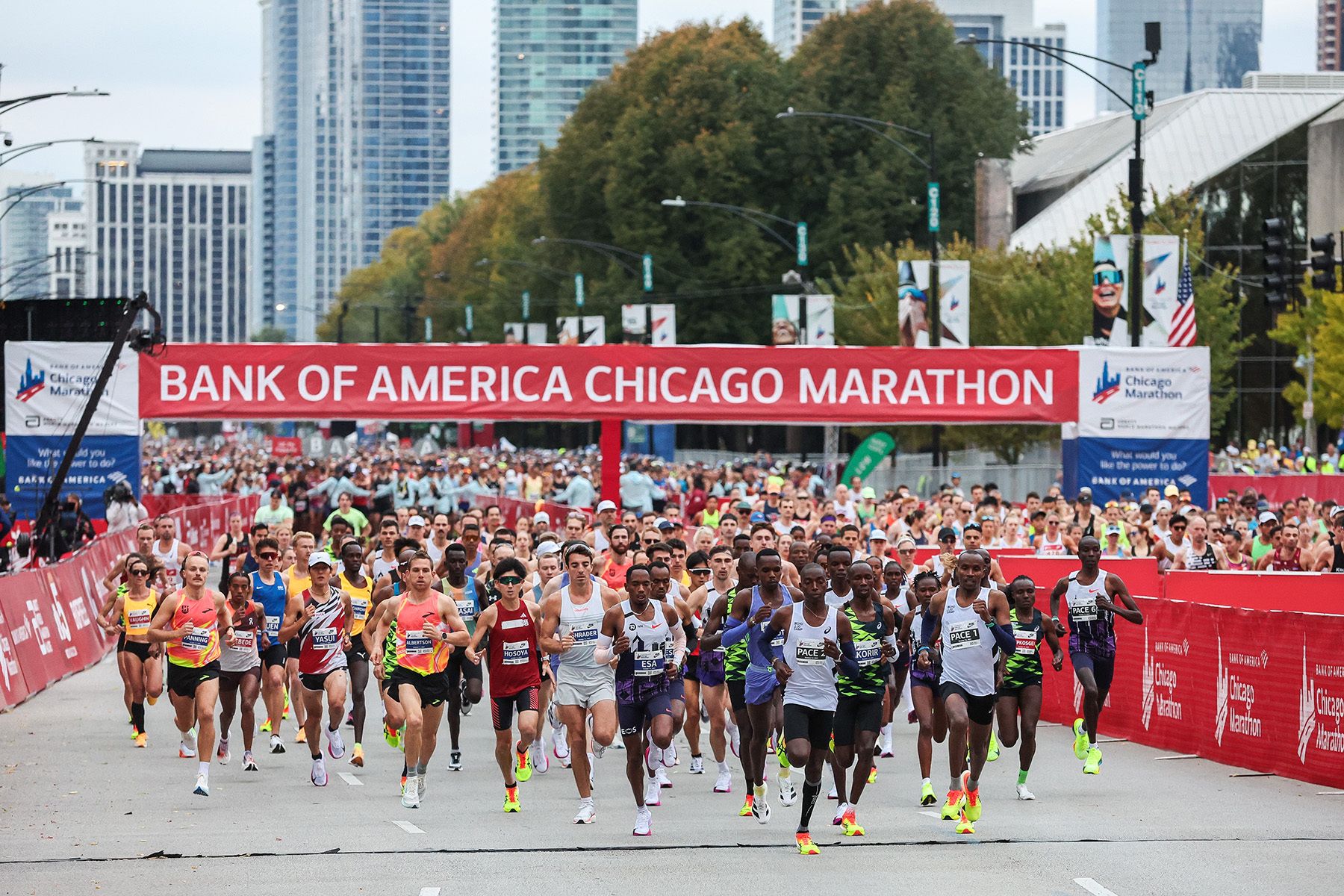
Hello! Welcome back to Footprint – and happy Friday. Best of luck to everyone in Chicago for the marathon this weekend.
Conner Mantz is going for the American record. Geoffrey Kamworor is shooting for the win. Tens of thousands more have their sights set on the finish, in glorious Grant Park.
In New York City, we’ve reached the point in the countdown where it’s a struggle to go outside without seeing a marathoner getting in the miles.
I’ve been thinking a bit recently about the last time I geared up for a marathon, and some mistakes I made during the final stages. I wanted to write about it in today’s edition, in case someone else finds it useful.
EDITION #28
🧠 Unpacking performance anxiety – and what to do about it – with Olympian and sport psychology consultant Lennie Waite
🏙️ CHICAGO WEEKEND
Some 53,000 runners, and more than a million spectators, are expected in Chicago on Sunday. Axios pulled together this helpful guide on where to eat, drink and watch • Read
🌡️ WARM WORDS
Blistering heat and difficult decisions: climate change is coming for the marathon, Jen A. Miller writes for Slate • Read
🏔️ CATCHING KILIAN
Mountain athlete Kilian Jornet summited the highest 72 mountains in the contiguous US. Andy Cochrane tracked his progress • Read
🏟 ATHLOS RETURNS
Women’s track event Athlos returns in New York City tonight. Founder Alexis Ohanian set out his plan to the New York Post • Read
📚 LAZARUS LAKE
A new book tells the story of the enigmatic mastermind of ultra-running classics like the Barkley Marathons. Its author went to great lengths to reach him, explains Drew Dawson • Read
You Get To Tell The Story

One Sunday morning this spring, long before dawn, I sat through what felt like one of the longest bus rides of my life.
A few weeks previously, a seed of doubt landed in my head. By the time I took my seat for the journey to the start line, it was a full-grown oak tree – with roots that seemed to stretch down into my stomach.
My head was consumed by irrational fears, fixated on everything little creak, click or crack my body had felt, or may have felt, or might feel. I was asking if, not when, I would finish. I wondered what on earth I was thinking, entering the race in the first place.
That morning, after several trips to the porta-pottie, I stood in the drizzle and the dark, focused on that tree of doubt. Every falling leaf offered another reason to worry.
But then it started. Left foot. Right foot. Inhale. Exhale. One yard. Another yard. And another.
My head calmed down. My stomach did, too. The doubt started to ease. I left most of the fears on the side of the road about three miles in, and went on to enjoy one of the best runs of my life.
Running is built on action, not words. You can’t talk, or write, or argue yourself to a finish line. But you can talk yourself back from the start.
I finished the race that morning in one piece, despite my expectations, and asking what the heck had come over me. It wasn’t so much nerves, as a narrative, that had taken hold in the weeks beforehand – and prompted me to question if I would, could, and should take on another marathon.

This type of predicament is more common than you might think, according to Lennie Waite, an Olympian turned sports psychology consultant. “I don’t think I’ve ever worked with an athlete that hasn’t had doubts, or some level of performance anxiety,” she told Footprint.
Pre-race nerves “are fine, and good, and totally normal,” added Waite. But when anxiety is allowed to take control, and overshadow the way you approach what you’re preparing for, it can cause problems.
There are different levels of anxiety, of course. Seeds. Saplings. Trees. Forests.
“Anybody who has the brain to create an ambitious goal that is really, really challenging, and requires a huge amount of effort, is going to find themselves with a sense of performance anxiety,” said Waite. “To me, that’s part of the process.
“You will wake up one day and be like, ‘shit, I signed up to do this, and am I going to be successful or not?’ And if you don’t go through that, you’re probably disconnected from what you’re doing.”
Most marathoners are aware of the scale of the task ahead of them, and find themselves wondering – even briefly – whether or not they will be able to do it. How they handle such doubt is important.
Many choose to keep it to themselves, noted Waite, as they think it would be “weird” after actively signing up for something to “start complaining” about it.
“Typically when people first have their first performance anxiety experience, they respond in a natural way, which is to worry, and almost feed that spiral,” she said. “And when you’re experiencing anxiety in general, and this is the case even with performance anxiety in sports, your instinct is to not do anything, or just like let your brain take over.
“Anxiety needs action. If you have that performance anxiety, you need to think: what is my plan? What am I doing in these final three days? How am I outlining my day? How am I keeping my body in motion? When am I eating? Simple things.”
Waite knows what it’s like. Preparing to represent Great Britain in the steeplechase at the Rio 2016 Olympics, she found herself in “a horrible headspace” during a race. She asked why she deserved to be an Olympian. She asked herself why she was there.
After the race, Waite allowed herself to consider the journey that had brought her to that point, and how far she had come, rather than just where she was headed. Everything started to ease up, she said, when she focused more on the progress she had made.
“You get to choose the story that you tell,” said Waite. “You can choose the story of waking up so early, being so tired, missing dinners with your family, having a shit race.
“Or you can tell the story of choosing to do something that not many people choose to do, and finding things that you’re capable of that you never knew, and even through failing, learning a lot. You get to tell that story.”

Courtesy of Keira D’Amato
ONE LAST THING…
Every run is a challenge, of sorts. But not every run has 1,576 stairs.
More than 200 runners tackled the annual Empire State Building Run-Up earlier this week, all the way up to the skyscraper’s observatory on the 86th floor.
The elite race was won by Fabio Ruga of San Siro, Italy, who finished in 10:47, and Shari Klarfeld of Plainview, New York, in 14:07.
My feet are staying firmly on the ground.

Noam Galai / Getty Images for Empire State Realty Trust
